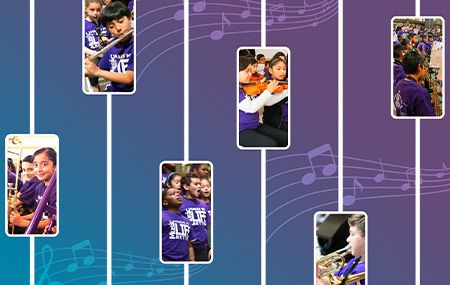
Education Through Music Los Angeles
In this report we show findings from a study we conducted in six Los Angeles Unified School District (LAUSD) Elementary schools to rigorously evaluate the
impacts of the Education Through Music–Los Angeles program on teacher attitudes towards music education and their assessments of changes over time in student
behaviors associated with academic and social success.
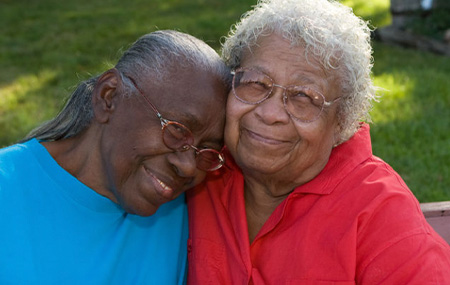
CARING FOR THOSE WHO CARE
The Santa Barbara Foundation (SBF) believes that aging with dignity should be a shared community value. Caring is the foundation of our humanity. At the same time, caring for others can be demanding and even draining. When a society depends on family members to care for elders, the needs of those providing such
care must also be seen and addressed. For these reasons, SBF envisioned and provided leadership and support for the Santa Barbara County Community Caregiving Initiative (CCI).

Washington State Rape Prevention and Education Program
This program evaluation report focuses on two additional implementation issues. One was adherence to WA RPE’s implementation effectiveness principles. Grantees completed self-assessment surveys and typically reported finding the principles clear, useful, and inspirational, with some variation depending on the item. The other program evaluation progress occurred among the four grantees conducting community-level programs.

College Alcohol, Tobacco, and Other Drug Use in New Mexico
We have been partnering with the New Mexico Higher Education Prevention Consortium for more than a decade. Each year we help them collect, analyze, and interpret data from thousands of students at colleges and universities across the state. Our reports monitor the prevalence of substance use and other risky behaviors over time. This helps the Consortium evaluate and improve their health and wellness programming.

Prime for Life (PFL) – Iowa Program Evaluation Report
We value supporting programs that alter the course of people’s lives when they are engaging in risky behaviors. Because of this, we have used our research design and data analysis skills to assist Prevention Research Institute, a leader in creating cutting edge substance use prevention programs. In addition to collaborating on the design of future research projects, we created reports about the effects of the Prime For Life® program for ten states that provide it to people arrested for substance use infractions, such as drinking while driving.

Community Caregiving Initiative (CCI) – Supporting the Caregiving Journey
In creating a 2019 report for the CCI, we wanted to develop a product that could reach a broader audience, tell the story and successes of the CCI, and be something partners could share to promote their work. To do this in an interesting and digestible way, we created a brief video summary of evaluation findings. In terms of a written product, we created a streamlined report in the hopes that would best serve the stakeholders.
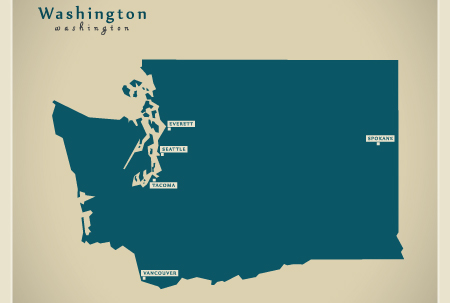
The Washington State Rape Prevention and Education (RPE) Toolkit
We have been a part of Washington’s sexual assault prevention efforts for the last four years. We have enjoyed filling the needs of this project using a mix of approaches, including capacity building, review of scientific literature, development of an evaluation toolkit, identification of principles of effective implementation, engagement in collaborative decision making, and use of both qualitative and quantitative data.

Caregiver Navigation Toolkit – A Guide for Hospital Administrators, Providers, and Staff
We loved this project because it challenged us to be very creative and to put on our program design hat. We quickly met a client need by developing a toolkit that identified the basic components of a Caregiver Navigation Project and described how hospitals could launch such an endeavor. Our experience on complicated projects with multiple needs helped us sift through many ideas while bringing this toolkit to the finishing line.

Principles-Focused Evaluation: A Demonstration with Examples from Washington State’s Rape Prevention and Education Program
It was exciting to use Principles-Focused Evaluation (PFE) with our CDC-funded clients in Washington State’s Rape Prevention and Education program. This cutting-edge evaluation method involves helping providers identify what their programs share in order to evaluate across their diverse kinds of work. Presenting a demonstration of this experience at American Evaluation Association’s 2019 conference let us engage the audience by showing how PFE worked for us and can be used by others.

Video Evaluation Reports – Using Popcorn, Powerful Stories, and Pictures to Share Your Data
This session presented at American Evaluation Association’s 2019 conference included three evaluators demonstrating how they used video evaluation reports to increase the understanding and use of findings. We explored how diverse purposes, audiences, and storylines served to hone the ideal content of each video.

Key ingredients for school food systems
We conducted a mixed-methods evaluation of the Orfalea Foundation’s School Food Initiative (SFI). Findings showed the initiative succeeded in improving food literacy and the quality of food served in the public schools of California’s Santa Barbara County.

Pasadena Public Health Department: WIC Roadmap
Evaluation Specialists worked with the Pasadena Public Health Department to pilot test a tool designed to communicate their Women, Infant and Children (WIC) offerings to their community. We designed and conducted a series of facilitated discussions and focus groups with women across the County. Findings describe strategies and recommendations for communicating WIC offerings to their target population.
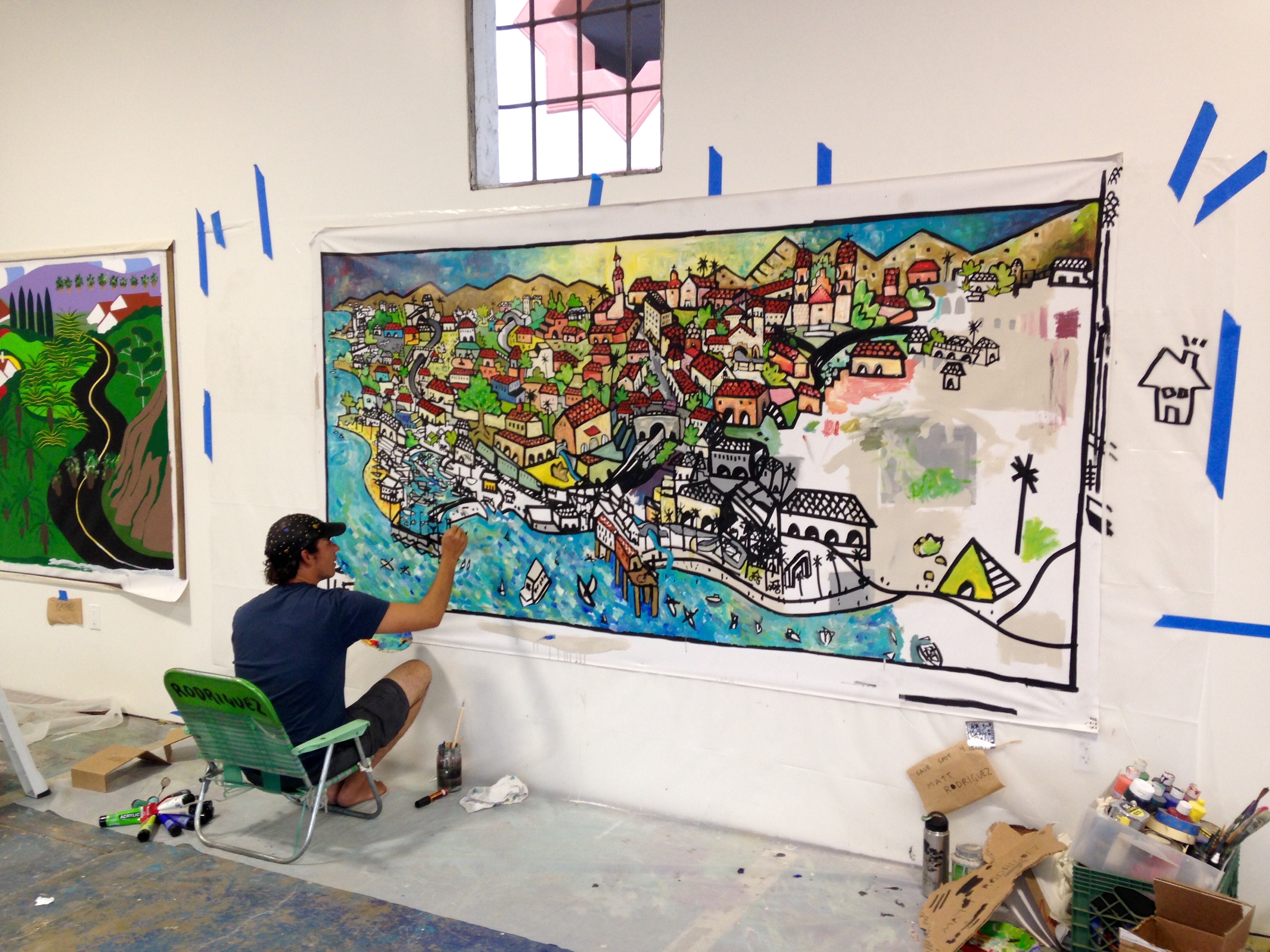
Santa Barbara Creative Communities Project
Evaluation Specialists worked with the Santa Barbara County Creative Communities Project to conduct intercept interviews with residents at 28 different locations. Findings describe residents’ interest in arts & culture, the value they ascribe to creative life, their level of participation, and barriers they perceive for involving themselves more deeply. Findings also provide insights into countywide differences in the arts & culture landscape between north and south county, English and Spanish-speaking residents, people who have young children vs. others who do not, different age groups, and different income levels.

Santa Barbara Foundation Community Caregiving Initiative
Evaluation Specialists is engaged in a multi-year, mixed-methods evaluation supported by AARP. This countywide effort is intended to help service providers learn about and better support family caregivers through four inter-connected strategies: 1) strengthening caregivers individually; 2) connecting community organizations and agencies to ensure caregivers can easily access supportive services; 3) creating new knowledge that will benefit caregivers; 4) raising awareness about caregiving and policy solutions that support caregiving.
See the Interim Report Summary
See the Interim Detailed Report

Emerging adults in substance misuse intervention
A team member published an article in Addiction Science and Clinical Practice examining drinking profiles among emerging adults (people aged 18 to 25), and transitions to lower risk profiles during the course of a a motivational enhancement program for reducing substance misuse.

Teaching older adults appropriate medication-taking practices
Evaluation Specialists recently completed an evaluation of a pilot program run by the American Association of Poison Control Centers. The program was designed to teach older adults appropriate medication-taking practices. Findings indicate that the program is a promising method of improving relevant behaviors.

Conducting evaluations as programs conclude
Evaluation Specialists recently published a summary of lessons learned in designing evaluations of programs as they conclude.
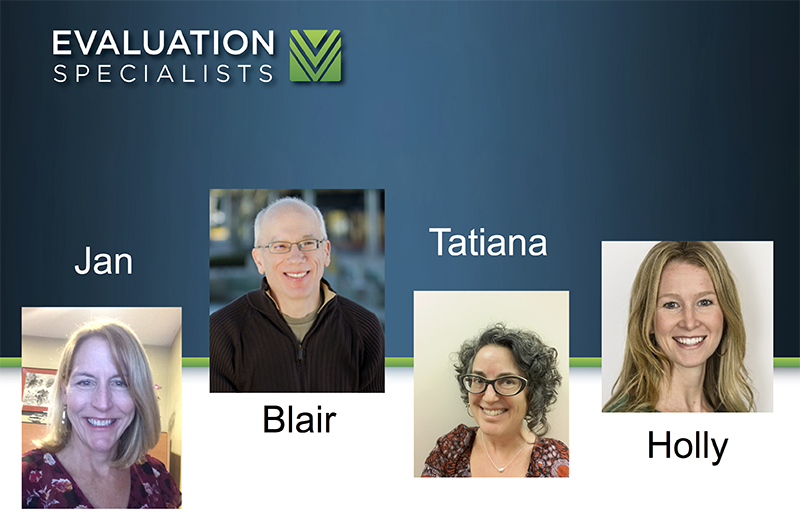
Conference presentation on subgroup analysis
Team members presented at the American Evaluation Association’s convention on the benefits of analyzing differences between subgroups of people. The presentation included methodological and data visualization examples.

Assessing practical significance in intervention programs
An Evaluation Specialists team member published an article in Evaluation in the Health Professions comparing different methods of assessing the benefits of intervention programs in terms of their practically significance.

Evaluation Capacity Building with Rape Prevention and Education Grantees
Evaluation Specialists provides evaluation capacity development activities to Washington state Rape Prevention and Education grantees. At the end of each of two years of activity, local programs successfully completed the required planning tasks, rated their evaluation capacity as improved at the end of the respective year, and reported increased confidence in their ability to conduct program evaluation.

Brain injury support program logic model
We worked with leadership and stakeholders of a brain injury support center to understand and document their theory of action. Rather than create a conventional logic model for this work, we designed a representation of their work that is accessible and visually interesting.

Conference presentation on latent class analysis
Team members presented at the American Evaluation Association’s convention on a statistical method that identified subgroups of people based on multiple characteristics.

Evaluating an OAH teen pregnancy prevention program
Evaluation Specialists teamed with Susan Carter to evaluate the National Indian Youth Leadership Project’s Teen Pregnancy Prevention Program, funded by the Office of Adolescent Health. We used sophisticated analytics, factor analysis, and propensity score matching to capture program effects.
See about propensity score matching, a method we used in this quasi-experimental design.

A guide for engaging in post-implementation evaluation
Evaluation Specialists recently designed and engaged in a mixed-methods evaluation of a program as it was coming to an end. We documented some key principles and practices important for evaluators and programs to consider in this kind of post-implementation evaluation work.

Early childhood education program evaluation
The Evaluation Specialists team completed a qualitative evaluation of a community-level early childhood education initiative designed and implemented by the Orfalea Foundation. We conducted in-depth interviews with key stakeholders throughout the community. We also worked with the Foundation’s leadership to develop an evaluative rubric to determine the value and impact of each of the three prongs of the initiative.

Survey of LGBTQ youth
An Evaluation Specialists’ team member was the Principal Investigator of a University of Washington research project that surveyed LGBTQ youth across the United States. Three manuscripts have recently been published in scientific journals.
